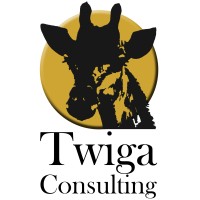Why Conflict Resolution Matters in South African Workplaces
In South Africa, workplace conflict often arises from a combination of factors — including cultural misunderstandings, communication breakdowns, organisational change, or perceived unfair treatment.
While many businesses still rely on disciplinary procedures as their first response, this can sometimes worsen tensions or lead to unnecessary disputes at the CCMA (Commission for Conciliation, Mediation and Arbitration).
A proactive conflict resolution approach, on the other hand, helps:
- Reduce the risk of formal grievances and CCMA referrals
- Maintain trust and respect between employees and management
- Encourage innovation through open dialogue
- Build a more inclusive and resilient company culture
Moving Beyond Discipline: A Modern Approach to Workplace Conflict
Traditional conflict management tends to focus on blame and punishment. While disciplinary action is sometimes necessary, it should not be the default response. A progressive approach focuses on resolution and prevention, promoting understanding and accountability.
- Encourage Early and Open Communication
Create opportunities for employees to express concerns before issues escalate. Regular check-ins, open-door policies, and anonymous feedback channels help management detect potential conflict early. - Understand the Root Cause
Conflicts often stem from unclear job roles, workload imbalances, poor communication, or perceived favouritism. Getting to the root of the issue — instead of reacting to surface symptoms — allows for more sustainable solutions. - Use Mediation and Facilitation
South Africa’s Labour Relations Act (LRA) promotes the use of mediation and conciliation to resolve disputes. HR managers or external consultants can serve as neutral mediators, facilitating constructive dialogue between parties. - Equip Managers with Conflict Resolution Skills
Many line managers are promoted based on technical ability, not people management skills. Training managers in emotional intelligence, active listening, and negotiation empowers them to address tensions before they become formal disputes. - Have Clear, Fair Policies
Transparent grievance and disciplinary policies — aligned with South Africa’s Code of Good Practice — ensure fairness and consistency. Employees should understand how conflicts are managed and what steps they can take to seek support. - Respect Diversity and Inclusion
Given South Africa’s multicultural workplaces, misunderstandings can arise from different communication styles or cultural norms. HR teams should promote cross-cultural awareness and inclusivity as part of conflict prevention. - Follow Up After Resolution
Once an agreement is reached, follow up to ensure the relationship and working environment are improving. This ongoing support shows commitment to both fairness and employee well-being.
Real-World Example: Turning Tension into Teamwork
A mid-sized Johannesburg logistics company faced persistent tension between drivers and dispatch staff over scheduling and communication. Instead of issuing warnings, management partnered with an HR consultant to conduct facilitated workshops.
Through open discussion, each group gained insight into the other’s challenges — such as tight delivery timelines and unrealistic communication expectations. Together, they developed new scheduling procedures and regular feedback sessions. Within two months, absenteeism dropped, teamwork improved, and operations ran more smoothly.
This case shows that constructive conflict management not only resolves issues but strengthens collaboration and efficiency.
Legal and HR Considerations
In South Africa, workplace conflict management must comply with local labour laws. The Labour Relations Act (LRA) and the Code of Good Practice: Dismissal provide guidelines on fair disciplinary procedures and dispute resolution.
Employers are encouraged to prioritise informal resolution and internal mediation before escalating to formal action or external arbitration. Proper documentation of all processes is essential for transparency and compliance.
Conflict in the workplace is inevitable, but it doesn’t have to be destructive. When handled with empathy, fairness, and structure, it can lead to stronger teams, better communication, and improved performance.
By moving beyond discipline and focusing on dialogue, understanding, and collaboration, South African businesses can create workplaces that are not only compliant but truly connected.
At Twiga Consulting, we assist organisations in developing effective conflict resolution strategies — grounded in South African labour law, cultural sensitivity, and best HR practice. If you’d like to build a workplace where issues are resolved with confidence and care, we’re here to help.
The insights shared in this article are based on recent industry trends and analyses from leading sources, CCMA (Commission for Conciliation, Mediation and Arbitration) – Guidelines on Workplace Dispute Resolution, Department of Employment and Labour (South Africa) – Labour Relations Act, No. 66 of 1995, South African Labour Guide – Code of Good Practice: Dismissal and Disciplinary Procedures, CIPD – Managing Conflict at Work, Forbes – How to Manage Conflict in the Workplace.


Very informative! Conflict situations can be difficult, but learning how to resolve them early without unnecessary escalation is a big win!